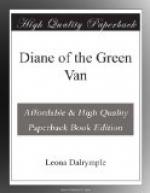Four o’clock and the log dying! The city outside was a dark, clinking world of milkmen and doubtful stragglers, Carl finished the whiskey in his glass and rose. His brain was very drunk—that he knew—for every life current in his body swept dizzily to his forehead, focusing there into whirling inferno, but his legs he could always trust. He stepped to the table and lurched heavily. Mocking, treacherous demon of the bottle! His legs had failed him. Fiercely he flung out his arm to regain his balance. It struck a candelabrum, a giant relic of ancient wood as tall as himself. It toppled and fell with its candled branches in the fire. Where the log broke a flame shot forth, lapping the dark wood with avid tongue. With a crackle the age-old wood began to burn.
Carl watched it with a slight smile. It pleased him to watch it burn. That would hurt Diane, for everything in this beautiful old Spanish room linked her subtly to her mother. Yes, it would hurt her cruelly. Beyond, at the other end of the table, stood a mate to the burning candlestick, doubtless a silent sentry at many a drinking bout of old when roistering knights gathered about the scarred slab of table-wood beneath his fingers. A pity though! Artistically the carven thing was splendid.
Cursing himself for a notional fool, Carl jerked the candlestick from the fire and beat out the flames. The heavy top snapped off in his hands. The falling wood disclosed a hollow receptacle below the branches . . . a charred paper. Well, there was always some insane whim of Norman Westfall’s coming to light somewhere and this doubtless was one of them.
The paper was very old and yellow, the handwriting unmistakably foreign. French, was it not? The firelight was too fitful to tell. Carl switched on the light in the cluster of old iron lanterns above the table and frowned heavily at the paper. No, it was the precise, formal English of a foreigner, with here and there a ludicrous error among the stilted phrases. And as Carl read, a gust of wild, incredulous laughter echoed suddenly through the quiet room. Again he read, cursing the dizzy fever of his head. Houdania! Houdania! Where was Houdania? Surely the name was familiar. With a superhuman effort of will he clenched his hands and jaws and sat motionless, seeking the difficult boon of concentration. Out of the maelstrom of his mind haltingly it came, and with it memory in panoramic flashes.
Once more he heard the clatter of cavalry galloping up a winding mountain road to a gabled city whose roofs and turrets glinted ruddily in the westering sun. There had been royalty abroad with a brilliant escort, handsome, dark-skinned men with a lingering trace of Arab about the eyes, who galloped rapidly by him up the winding road to the little kingdom in the mountains. Houdania!—yes that was it—of course. Houdania! A Lilliputian monarchy of ardent patriots. There had been a flaming sunset behind the turrets of a castle and he had climbed up—up—up to the gabled kingdom, seeking, away from the track of the tourist, relief from the exotic gayety of his rocketing over Europe. And high above the elfin kingdom on a wooded ravine where a silver rivulet leaped and sang along the mountain, a gray and lonely monastery had offered him a cell of retreat.




